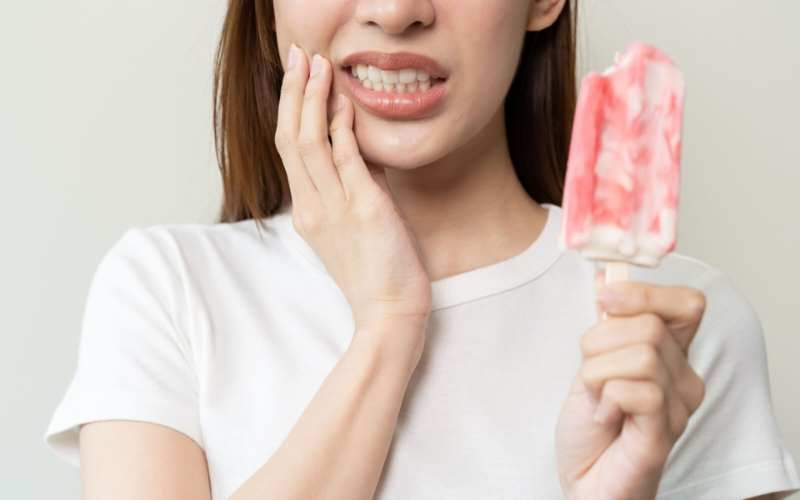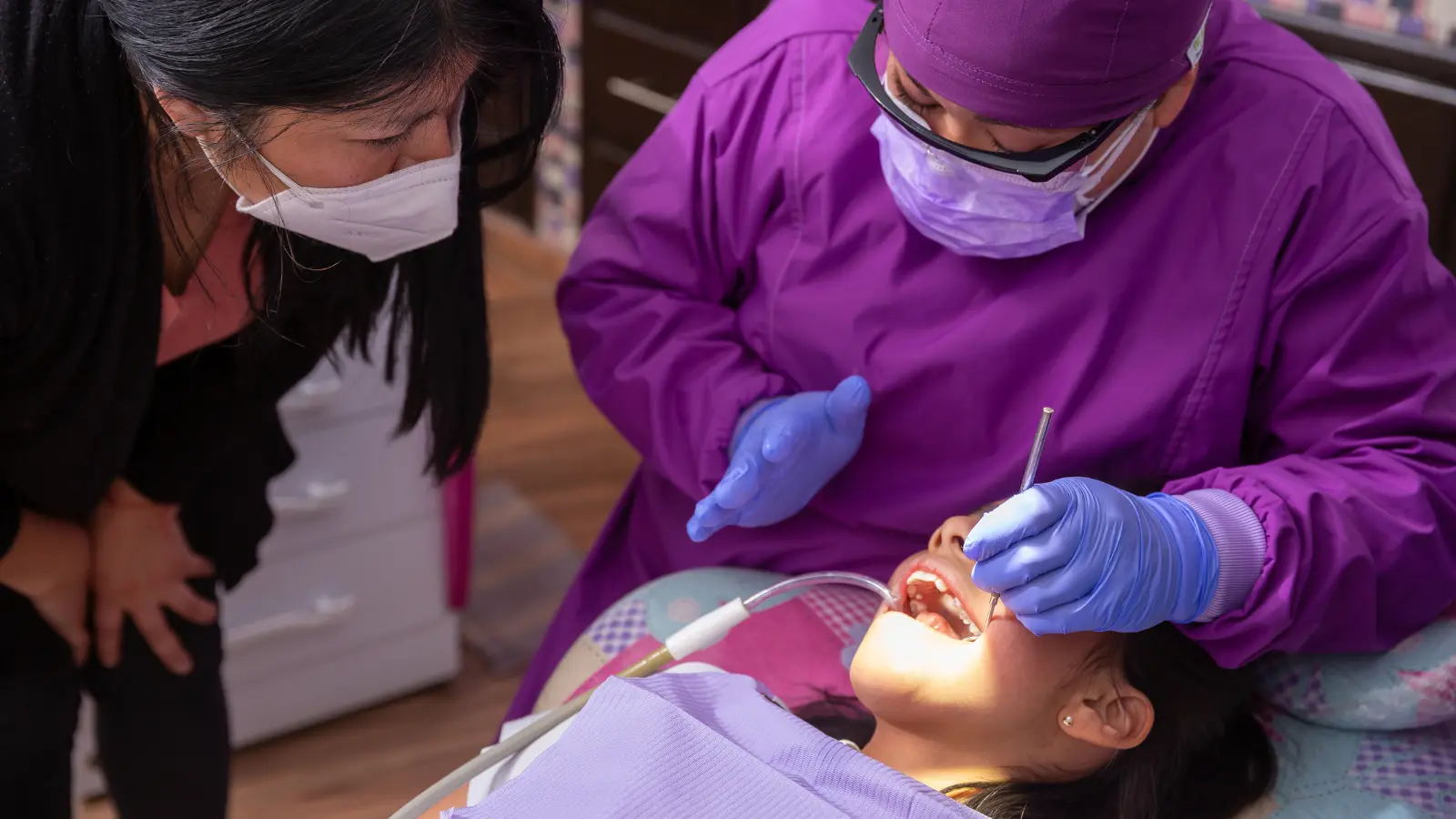E-mail Us
Why Frozen Treats Can Cause Tooth Sensitivity & What To Do?

Who doesn’t enjoy eating ice cream on a hot day? You’re not alone, though, if you’ve ever taken a bite out of something frozen and then felt a stinging pain in your teeth. Millions of individuals worldwide suffer from tooth sensitivity, which can make a delicious delicacy painful. But your favorite frozen sweets don’t have to be sacrificed because today’s blog is all about explaining the causes of this along with potential solutions.
Why Can Tooth Sensitivity Be Caused by Frozen Treats?
Your teeth are shielded by their enamel. It can be worn down by grinding, vigorous brushing, or acidic meals, revealing the delicate dentin underlying.
- As enamel thinning occurs, cold foods and beverages may make their way to the little nerve endings inside your teeth and cause discomfort.
- The tooth roots become more exposed as a result of gum recession caused by aging, gum disease, or poor dental hygiene, which makes them extremely vulnerable to cold temperatures.
- Cavities cause holes in your enamel, which makes it easier for cold temperatures to get to your nerves and cause that excruciating pain.
- Your teeth can get more susceptible to temperature variations if you have little cracks in them from grinding or eating hard foods.
How Can You Control and Avoid Tooth Sensitivity?
Use a Sensitivity Toothpaste
Special desensitizing toothpaste helps block nerve signals and strengthen enamel over time.
Brush Gently with a Soft-Bristle Toothbrush
Hard brushing wears down enamel and aggravates sensitivity. Switch to a soft brush and use gentle strokes.
Overbrushing can also lead to gum recession, which may expose tooth roots and increase sensitivity. In severe cases, this can lead to a dental emergency in Upland, such as extreme pain or infection.
Avoid Acidic & Sugary Foods
Citrus fruits, soda, and sweets can erode enamel. Limit their intake to protect your teeth.
Try Fluoride Treatments
Fluoride helps rebuild weak enamel. Dentists can recommend fluoride toothpaste or in-office treatments.
Use a Straw for Cold Drinks
Minimize direct contact between your teeth and cold beverages by using a straw.
Wear a Mouthguard if You Grind Your Teeth
Bruxism (teeth grinding) can wear down the enamel, increasing sensitivity. A custom mouthguard can help.
Timely Visit A Dentist
The American Dental Association (ADA) estimates that 1 out of 8 individuals has sensitive teeth. Routine checkups help catch early signs of enamel erosion, cavities, or gum recession before they become bigger issues.
When To Reach Out To A Dentist For This Issue?
If your sensitivity persists despite home remedies, it could indicate a deeper issue like tooth decay, gum disease, or an exposed nerve. A dentist recommends treatments such as:
- Dental bonding to cover exposed dentin.
- Fluoride varnishes to strengthen enamel.
- Gum grafting if a recession is severe.
- Root canal therapy for extreme sensitivity and nerve damage.
So, tooth sensitivity shouldn’t keep you from enjoying life’s little pleasures, like ice cream and frozen drinks. By understanding the causes and taking preventive steps, you can protect your teeth and indulge worry-free! Suffering from tooth sensitivity? Schedule a dental checkup with our dentist today!









